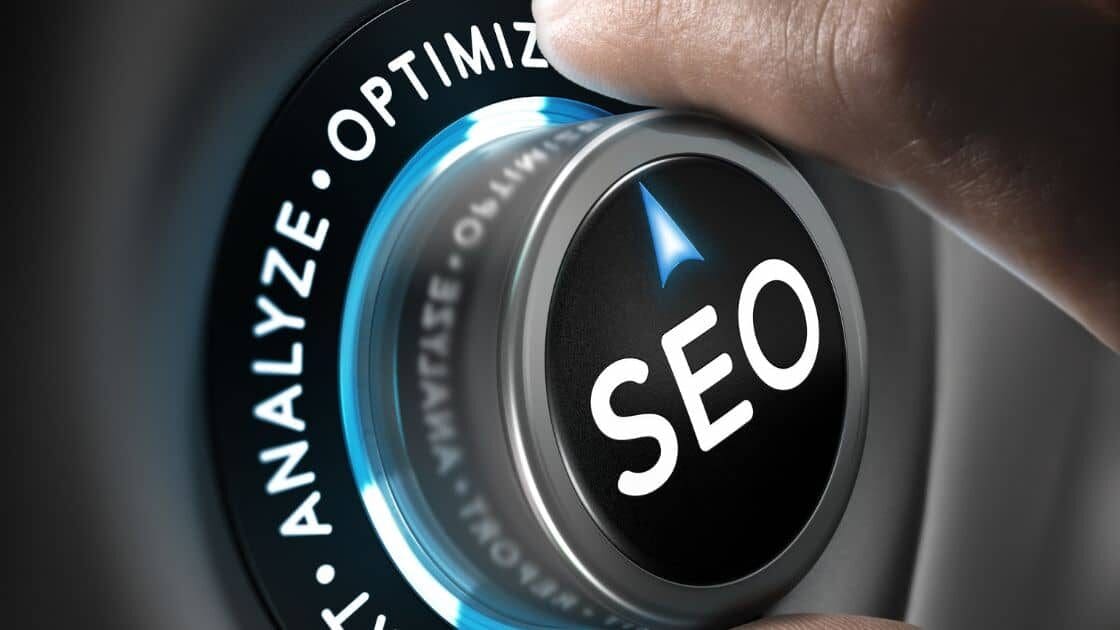As the digital landscape continues to evolve, so does the way businesses approach search engine optimization (SEO). Are you ready to embrace the rise of AI-powered SEO and maintain your competitive edge in the ever-changing digital world?
Key Takeaways
AI is revolutionizing SEO by automating tasks, enhancing search accuracy and personalization, and providing businesses with tools to remain competitive.
Businesses must invest in AI-driven SEO tools & strategies to stay ahead of the competition for improved rankings & organic traffic.
Case studies highlight the effectiveness of AI-powered SEO tools. Businesses should stay up to date on developments for future success.
The New Era of SEO: AI’s Impact

AI’s integration into SEO is revolutionizing the industry, automating tasks, and enhancing search accuracy and personalization. Hence, businesses must adjust their SEO strategies to remain competitive. AI SEO tools are now becoming the deciding factor between not capitalizing on traffic and appearing on the first page of Google results, making them an indispensable part of a successful SEO strategy.
AI-powered algorithms can significantly enhance search accuracy by providing more accurate, personalized, and efficient search results. Businesses, through the use of AI-powered SEO tools, can evolve into more efficient brands and connect effortlessly with audience search queries, bypassing laborious research and content editing tasks.
Advancements in AI-Powered SEO Tools
AI-powered tools are revolutionizing various aspects of SEO, including keyword research, content creation, and link building. These advancements enable businesses to streamline their SEO efforts and enhance their online presence.
Now, let’s explore how AI is reshaping these vital areas.
Keyword Research Revolution
AI is automating and enhancing keyword research, providing more accurate and relevant suggestions for businesses to target. Utilizing AI for keyword research offers numerous advantages, such as:
Improved efficiency and time-savings: AI can automate the process of keyword research, thus saving businesses valuable time that can be better spent on other tasks.
Precision in keyword analysis: AI technology can provide more accurate and detailed keyword analysis, helping businesses to target the most relevant keywords for their content.
Understanding of search demand: AI can analyze search trends and predict future demand, enabling businesses to stay ahead of the curve.
Awareness of competitors’ rankings: AI tools can provide insights into the keyword strategies of competitors, giving businesses a competitive edge.
Discovering long-tail keywords: AI can identify long-tail keywords that may not be obvious but can drive significant traffic to a website.
Data-driven insights: AI can analyze large amounts of data and provide valuable insights, helping businesses to make more informed decisions.
Faster and more efficient results: AI can provide results in real-time, making it an invaluable tool for businesses that need to act quickly.
Real-time results: AI tools can provide up-to-the-minute data, enabling businesses to stay updated with the latest trends and changes in search demand.
Gathering more applicable keywords: AI can analyze a business’s content and suggest relevant keywords that may not have been considered, helping to improve the effectiveness of their SEO strategy.
Semrush, for example, leverages AI to assist users in identifying the most pertinent and effective keywords for their content, offering a variety of long-tail keywords, search volume data, and keyword difficulty scores.
This level of precision in keyword research allows businesses to optimize their content more effectively, ultimately driving more organic traffic to their websites.

Content Creation and Optimization using AI-Powered SEO tools
AI-driven tools that are streamlining content creation and optimization processes include:
HubSpot: An all-in-one inbound marketing, sales, and service platform that uses AI to provide predictive lead scoring, customer segmentation, and chatbots.
PageSpeed Insights: A tool powered by Google’s Lighthouse that uses AI to analyze the content of a web page, and then generates suggestions to make the page faster.
Semrush: An online visibility management platform that leverages AI for keyword research, backlink analysis, and traffic analytics.
RankIQ: An AI-driven SEO tool that helps bloggers and online businesses to identify the best keywords and topics to target.
WordLift: An AI-powered SEO tool that helps you organize posts and pages using semantic SEO.
Scalenut: An AI content creation tool that automates the process of content writing, making it faster and more efficient.
Neuraltext: An AI content optimizer that helps you improve your content’s SEO and readability.
Outranking: An AI writing assistant that helps you write better SEO content faster.
Byword: A writing app that uses AI to help you write more efficiently, supporting keyword shortcuts and markdown.
NeuronWriter: An AI-powered writing tool that helps you write articles, blog posts, and other types of content faster and easier.
WriterZen: An AI-powered SEO tool that simplifies keyword research, content creation, and Google SERP analysis.
Frase: An AI content tool that helps you create detailed content briefs in seconds.
SurferSEO: An AI-driven SEO tool that provides data-driven insights to optimize your website and improve its ranking on search engines.
These SEO tool features provide options for finding and evaluating relevant keywords, enabling businesses to create high-quality, SEO-friendly content tailored to user intent.

AI-Powered SEO Automation
AI possesses the capability to automate and enhance keyword research and content optimization processes using AI tools. This includes:
Identifying semantic links between keywords
Discerning search trends
Predicting user behavior
Generating meta tags and headings
With the use of these AI-driven tools, businesses can enhance their content for search engine algorithms, including their social media posts, leading to better search engine rankings and a boost in organic traffic and can also help in understanding the sentiment behind user queries, enabling businesses to tailor their content to meet user needs more effectively.
They can also assist in identifying and targeting trending topics, which can help businesses stay relevant and capture more organic traffic. Additionally, AI tools can automate the process of meta tag and heading generation, which not only saves time but also ensures that these elements are optimized for search engine algorithms.
Content Optimization Performance with AI-Powered SEO Tools
With the help of AI tools, you can analyze the performance of the content and provide insights into areas that need improvement. They can identify content gaps, suggest content updates, and even predict the potential impact of these updates on search engine rankings. This level of insight allows businesses to continuously optimize their content and stay ahead of the competition.
AI-powered SEO tools can also help businesses optimize their social media posts for search engine algorithms. By analyzing the performance of past posts and predicting the potential impact of future posts, these tools can help businesses create social media content that is more likely to be favoured by search engine algorithms, leading to better search engine rankings and a boost in organic traffic.
Link Building Strategies

AI is not just improving but revolutionizing link-building strategies. By analyzing competitor backlinks and suggesting high-quality link opportunities, it provides a comprehensive view of the competitive landscape.
This advanced approach allows businesses to understand where their competitors are gaining their backlinks from, and identify potential opportunities for themselves. This is a game-changer in the SEO industry, as it automates a task that was once time-consuming and required extensive manual effort.
These AI-driven tools, such as SERP, Ahrefs, SemRush, and Dorik’s Backlink Analysis tool, are capable of identifying and assessing the quality of backlinks, recommending link-building opportunities, monitoring and analyzing backlink performance, and uncovering insights about competitors’ backlink profiles.
Employing AI to pinpoint high-quality link opportunities enables businesses to improve their search engine rankings and attract organic traffic to their websites effectively. This advanced approach to link-building allows businesses to stay ahead of the competition and maintain a strong online presence. By using AI, businesses can streamline the process of identifying and securing high-quality backlinks, thus saving time and resources.
AI-Enhanced Analytical Power
The AI’s ability to analyze vast amounts of data and identify patterns allows it to suggest link opportunities that human researchers might overlook. This not only results in more effective link-building strategies but also enables businesses to respond more quickly to changes in the online landscape.
Furthermore, AI can provide insights into the link-building strategies of competitors, giving businesses a competitive edge in their SEO efforts. In sum, the use of AI in link-building is a game-changer that offers businesses the opportunity to enhance their SEO strategies, boost their online visibility, and attract more organic traffic.
Personalization and User Experience with AI-Powered SEO Tools

AI enhances user experience by analyzing user behaviour, offering personalized content, and providing instant assistance through chatbots. AI-powered algorithms have revolutionized SEO by personalizing search results and enhancing the user experience, enabling businesses to engage with users by understanding their needs and delivering tailored content.
AI chatbots, for example, have the potential to provide a personalized, real-time experience for users, thus improving engagement and making the website more user-friendly. This level of personalization not only increases user satisfaction but also contributes to the overall success of a business’s SEO efforts.
These AI chatbots are capable of learning from past interactions and adapting their responses accordingly. This adaptive learning capability allows them to provide personalized responses that match the user’s needs and preferences, thereby enhancing the overall user experience.
AI Chatbots Help Increase User Satisfaction
AI chatbots can handle multiple user queries simultaneously, ensuring that every user receives immediate attention. This real-time interaction significantly improves user engagement and reduces the chances of users leaving the website due to delayed responses.
Furthermore, AI chatbots can provide 24/7 customer service, which is particularly beneficial for businesses that operate globally in different time zones. Users can get their queries answered at any time of the day, which greatly enhances the user-friendliness of the website.
The integration of AI chatbots into a website’s SEO strategy can indeed lead to a significant increase in user satisfaction. Users who have a positive experience on a website are more likely to return, which can lead to higher organic traffic, improved search engine rankings, and ultimately, greater success in a business’s SEO efforts.
Voice and Visual Search Optimization

Artificial intelligence is enabling businesses to optimize for voice and visual search, making it easier for search engines to index and rank content. AI technologies, such as natural language processing (NLP), are enhancing voice recognition capabilities and offering insights to optimize content for voice search.
In the realm of visual search, AI-enabled image recognition technology can accurately identify objects within images, thus facilitating search engines to comprehend and index visual content more efficiently.
Optimizing content for both voice and visual search allows businesses to make their content more discoverable and achieve higher rankings on search engine result pages by implementing an effective content strategy, which includes search engine optimization.
Overcoming Challenges in AI-Powered SEO
AI-driven SEO tools must tackle issues such as plagiarism and providing inaccurate results before they can fully replace traditional SEO methods. To address the issue of plagiarism in AI-powered SEO tools, businesses can employ strategies such as:
Careful review and revision of generated content
Utilization of AI-based paraphrasing tools
Implementation of plagiarism detection tools
Familiarity with assignment briefs and guidelines
Techniques like deep learning, AI Learning to Rank, natural language processing, and generative AI for SEO can be harnessed to train AI models for delivering more precise results in SEO optimization.

NLP and Deep Learning
Deep learning, a subset of machine learning, is capable of processing large amounts of data and identifying patterns, which can significantly enhance the accuracy of SEO efforts. AI Learning to Rank, on the other hand, uses machine learning algorithms to rank web pages based on relevance to a specific query. This technique can greatly improve the efficiency of search engines and boost the visibility of businesses online.
Natural language processing, another AI technique, helps in understanding and interpreting human language, making it possible for search engines to deliver more accurate results based on user queries. This can result in a more personalized user experience, leading to higher user engagement and satisfaction.
Generative AI for SEO is another innovative technique that can be used to generate SEO-friendly content. This technique can produce unique and relevant content, helping businesses to rank higher in search engine results and attract more organic traffic.
By overcoming these challenges, businesses can fully leverage the power of AI in their SEO efforts and reap the benefits of improved search rankings and increased organic traffic. The integration of AI in SEO strategies can provide businesses with a competitive edge in the digital marketplace, enabling them to stay ahead of the competition and achieve their business goals.
Adapting to the AI-powered SEO Landscape

Businesses must embrace AI-powered SEO tools and strategies to stay ahead of the competition and maintain a strong online presence. Utilizing AI-powered SEO tools and strategies can assist businesses in optimizing their content for search engine algorithms, automating tedious tasks, and providing more precise data for decision-making.
To effectively adapt to the evolving AI-driven SEO landscape, businesses need to be ready to invest in AI-powered tools, keep abreast of the latest advancements, and demonstrate a willingness to adjust their SEO strategies as necessary. By doing so, businesses can ensure they remain competitive in the ever-evolving digital landscape.
Case Studies: Success Stories in AI-Powered SEO
Real-world examples of businesses leveraging AI-powered SEO tools to improve their search rankings and drive organic traffic are numerous, demonstrating the power and reach of AI in the SEO landscape:
GumGum, a contextual intelligence company, uses AI to optimize website content and improve search engine rankings for major companies. Their technology is able to analyze visual content and text, providing more relevant ad placements and improving user experience.
BuzzFeed, the popular digital media company, utilizes AI to personalize quiz content, driving significant traffic to their website. Their AI algorithms analyze user interactions and preferences to deliver personalized content, keeping users engaged and coming back for more.

Leading Enterprises using AI
Airbnb, the online marketplace for lodging and tourism experiences, uses AI to optimize their listings’ SEO. They employ machine learning algorithms to analyze listing details and user behaviour, adjusting their SEO strategy accordingly to boost visibility and bookings.
Netflix, the streaming giant, employs AI to personalize user experiences and improve their website’s SEO. They use AI algorithms to analyze user behaviour and preferences, using this data to provide personalized recommendations and optimize their site’s visibility in search results.
Amazon, the e-commerce behemoth, uses AI to enhance their search engine optimization. Their AI algorithms analyze product details, customer reviews, and search queries to optimize product listings and improve their rankings in search results.
Etsy, an online marketplace for handmade items and craft supplies, uses AI to improve its SEO and provide personalized user experiences. They analyze user interactions, search queries, and product details to optimize their listings and improve their visibility in search results.
Google’s Responsive Search Ads, uses AI to optimize ad copy and improve ad performance. Google’s Responsive Search Ads leverage machine learning to adapt to users’ search queries, leading to higher click-through rates and improved SEO performance on search engine results pages. These success stories demonstrate the effectiveness of AI-powered SEO tools, such as Google Search Console, in driving tangible results for businesses.
These examples demonstrate the power of AI in enhancing SEO strategies and improving online visibility, ultimately driving more organic traffic and boosting business success.
Preparing for the Future of SEO
As the SEO landscape continues to evolve, it is crucial for businesses to keep up with AI advancements and adjust their strategies to sustain a competitive advantage in the constantly changing digital world.
To stay ahead, businesses can:
Keep up-to-date with the latest developments in SEO
Participate in conferences and seminars to learn from industry experts
Continuously educate themselves on AI advancements and how they impact SEO
By following these steps, businesses can ensure they are well-equipped to navigate the future of SEO.
Investing in AI-powered tools and strategies, such as machine learning and natural language processing, can provide businesses with the insights and capabilities needed to optimize their online presence and drive organic traffic. By staying ahead of the curve and embracing the rise of AI-powered SEO, businesses can secure their position in the digital marketplace and maintain a strong online presence.
Summary
In conclusion, AI-powered SEO is revolutionizing the industry, offering businesses a competitive edge through automation, personalization, and enhanced search accuracy. By embracing AI-driven tools and strategies, businesses can optimize their online presence and drive organic traffic, ensuring their success in the ever-evolving digital landscape. The future of SEO is undeniably intertwined with AI, and those who adapt and stay informed will emerge as the frontrunners in the race for online dominance.

Frequently Asked Questions
What SEO means?
SEO stands for Search Engine Optimization and refers to the process of improving a website’s technical configuration, content relevance and link popularity to boost its visibility in search engine results. This improves the chances that it will be found more easily when people search for related products, services or information.
How exactly does SEO work?
SEO utilizes keywords, internal and external links, and optimized content to help search engines find content and rank websites higher on SERPs. It involves optimizing a website’s technical configuration, content relevance and link popularity, so its pages become easily findable, more relevant and popular toward user search queries. As a result, search engines can better rank the website.
Is SEO still relevant in 2023?
SEO is still highly relevant in 2023 and will remain so for the foreseeable future. Good quality content, utilizing the right keywords, is essential to attract organic traffic and gain high SERP rankings, allowing businesses to stand out from the competition and get found online.
What is AI for SEO?
AI for SEO is an optimization technique that uses artificial intelligence to improve website organic performance and enhance SEO success. It helps businesses discover opportunities, expedite the process, automate specific tasks, and customize search results based on users’ past behaviours.
Can AI generate SEO?
AI can be a powerful asset for businesses aiming to improve their SEO and content strategies. It enables the generation of high-quality, tailored content that can help secure better rankings in search engines. Leveraging A.I. technology can be a great way to stay ahead of the competition.


